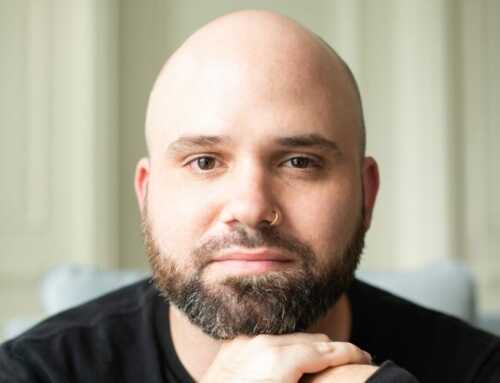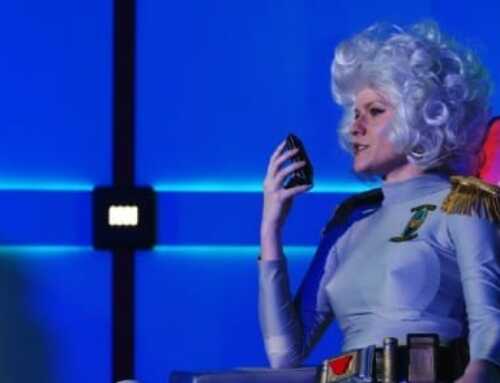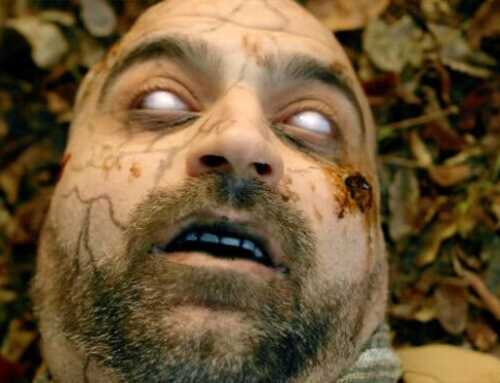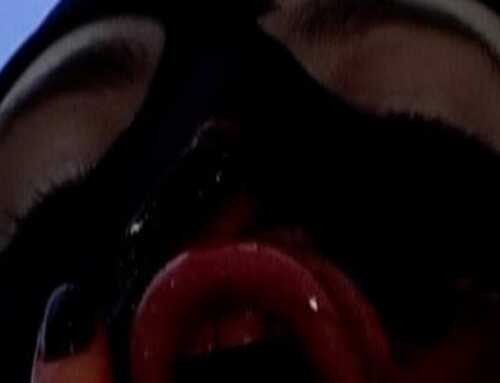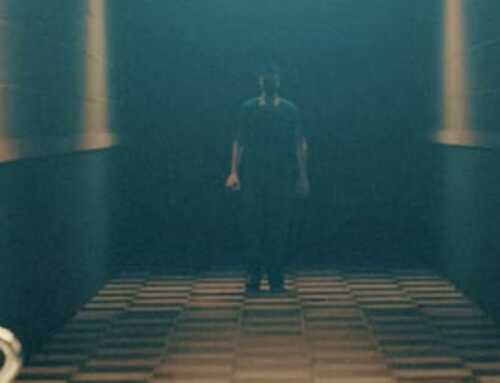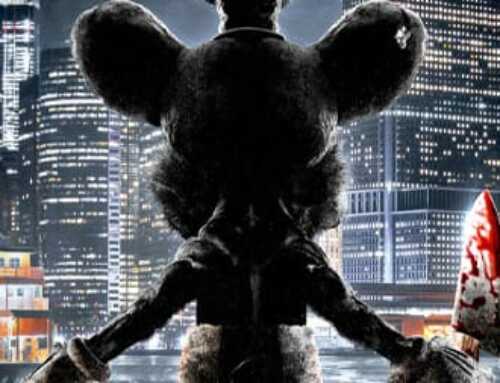One of the most principal elements of any film is one that, if done well, you rarely notice. A film score is one of the key elements in helping to guide and dictate the overall tone of a film. Obviously for horror fans films like Jaws and Halloween immediately come to mind with their iconic notes that are seared into our collective memory, evoking imagery of specific moments in a film. Meanwhile, there is a talented composer behind each note and arrangement that has worked carefully to guide the subconscious as the viewer is taken on a journey.
Today we talk with Devin Burrows the composer behind the new hit horror film THE WRETCHED. The story of an evil forest witch that devours her prey and erases memory is a twisty, gory creature feature that calls back to the days of old school, cinematic horror, complete with a lush film score. Burrows shares with us how he came aboard on THE WRETCHED and what it was like to go all out for a horror film score again.
HorrorBuzz: The Wretched. Uh, I loved it. I thought it was a lot of fun. And it was fun, too. See a creature feature which movie that was nice and bloody. And when I was watching it, I didn’t notice the score. And I was surprised at how cinematic it felt. I know that seems like a strange adjective for something that’s already in a film. But I was like, this is really good work. So I was happy to be able to interview you. My first question was, I mean, how did you get involved with the project?
Devin Burrows: I got involved with The Wretched because I worked with the directors, the Pierce brothers on a film called Deadheads in about 2011. That collaboration went really well. We worked really, really well together. We have sort of a similar sensibility about film music. They really wanted, you know, sort of a classic or cast orchestral score with strings, so that’s what we did. I got involved really early. They sent me copies of the script, and I would come up with some scenes and send that to them. And we kind of had this creative feedback loop for a while. Those themes and ideas became the sort of the language from which we constructed the score.
HB: That was my next question. I was gonna ask you about the directors choosing the tone for the score because it feels at times very Elfman and John Williams. Like you said it’s very cinematic. What are some of the elements that make it cinematic and really push it into that zone?
DB: Brett and Drew were very clear from the start that they wanted a score that is varied in tone. If you watch Jaws or a film like that, you know, there are terrifying parts of the film and they’re terrifying, dreadful parts of the score. Then there are also some light-hearted moments as well. That helps you get invested in the characters and, and build up to the big moments. So one thing I was clear that they wanted something that was quite varied in film. Many horror movies can sometimes be a little bit monotone with respect to the music, it’s sort of the same throughout but, but they wanted this movie to have peaks and valleys.
Brett and drew are just really big film score fans, I mean, they like really classic orchestral film scores like, like psycho, and Poltergeist. And we wanted something that sort of had its own unique sonic signature with some themes and motifs that they come back as pivotal points in the film and develop throughout the scenario. Those are, you know, those are all factors that contributed to the, to the sound of the score.
HB: Is there any particular element in horror? That is fun to work with in terms of creating the soundscape for that?
DB: If you think back to perhaps some older, like Halloween and A Nightmare on Elm Street, they have these characteristics. Seeing the motifs, like the sound that you hear sometimes in Friday the 13th, right? Or, I mean, everyone’s very familiar with the Halloween score. And what we wanted is, you know, something that had a little character, and that you would hear and you would recognize, oh, that’s The Wretched because they’re sort of recognize the scene. And we also wanted to give it its own unique sonic signature. Britt and Drew came into my place during post-production, and we had a musical instrument casting session if you will. And I wrote a bunch of instruments. And one thing that’s fun about all genres, and especially Horror is just using experimenting with unique instruments to impart an interesting dynamic texture.
HB: It’s horror and the genre that allows that, that exploration more than others.
DB: We really wanted to give the woods this kind of mysterious and foreboding vibe. The theme is being able to use themes and motifs, which is a throwback to older film scores and also being able to experiment with some instruments that would otherwise not be as interesting Sonic signature.
HB: Is there a particular bit in the score that you’re you’re proud of? That that you were just like, “Oh my God, we nailed this?”
DB: That’s a good question. I think that the words when we first cut to the woods the first time. We worked really hard to get the sound of the woods, right. I even traveled to Northern Michigan, rural Northern Michigan where they were shooting and on location, walk through the woods, and they were shooting some scenes of the Witches tree that she comes from at that time. It helps me get a feel for the type of mystery and the feeling that it would have. And also, I think, you know, that’s one of my favorite parts. Another part that I think we nailed is a battle sequence with the wit towards the end, there’s a song that says there’s a queue called wretched encounter. That you know, it’s kind of where we finally hear one of the main themes for the film, which is a theme related to the witches curse, and it is the same, the main theme for the record, and that’s when it’s played really big by the brass and we kind of build and release tension in that queue in a way that I think is effective.
HB: I have to say that it totally took me by surprise as something that was not only worth watching, but it was fun. I was gonna ask you. I still don’t get the title. Maybe I missed something?
DB: Yeah, it’s interesting. Initially, the film was called The Hag and Brett and Drew for whatever reason didn’t get approval to call it that. Actually they’ve been joking around about making a sequel hags, you know, like Aliens, but it’s possible. And I mean only half-joking they actually have some pretty cool ideas for their sequels.
HB: I’d love to see that.
DB: But they finally went with the wretched you know, which, which means something that’s in an unfortunate state and I think that part of the allegory of the witch may be explained in that she kind of needs to succeed and do these horrible things to, to maintain herself, to stay alive or to maintain her state. So that may have something to do with the title.
HB: Do you have any other projects coming up?
DB: I’m preparing to release the soundtrack. And I’m really excited about that. And, I mean, I don’t really have anything else I’d like to put out there. With the COVID-19 thing, I have had times to focus on creative endeavors and will likely be releasing some solo music.
HB: Well, Devin, it was a privilege to chat with you. We loved the move and thank you for your contribution to it.
The Wretched set box office records, holding the #1 spot for 5 weeks straight in America thanks to drive-ins. You can also catch the movie online. Unpleasant dreams.


